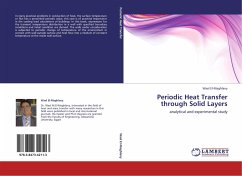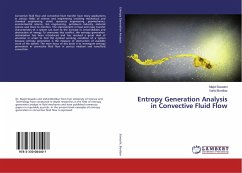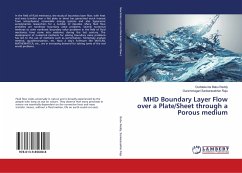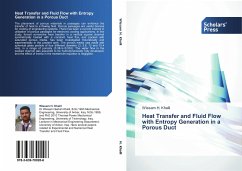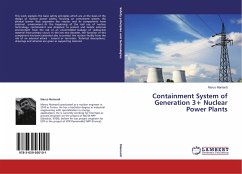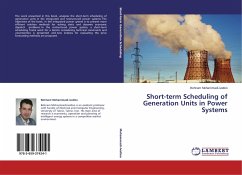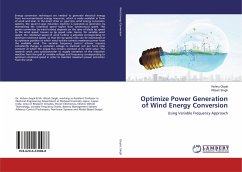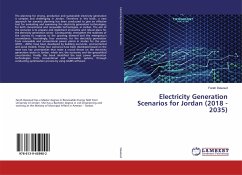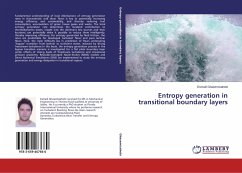
Entropy generation in transitional boundary layers
Versandkostenfrei!
Versandfertig in 6-10 Tagen
47,99 €
inkl. MwSt.

PAYBACK Punkte
24 °P sammeln!
Fundamental understanding of local distributions of entropy generation rates in characteristic wall shear flows is key to potentially increasing energy efficiency and sustainability, and thereby reducing fuel consumption, accumulation of green house gases and waste. The local entropy generation rate determines the localized contribution to thermodynamics losses; insight into the dominant loss sources and their locations can potentially make it possible to reduce them intelligently, thereby improving efficiency. For entropy generated by fluid friction, the rates are predictable for developed tu...
Fundamental understanding of local distributions of entropy generation rates in characteristic wall shear flows is key to potentially increasing energy efficiency and sustainability, and thereby reducing fuel consumption, accumulation of green house gases and waste. The local entropy generation rate determines the localized contribution to thermodynamics losses; insight into the dominant loss sources and their locations can potentially make it possible to reduce them intelligently, thereby improving efficiency. For entropy generated by fluid friction, the rates are predictable for developed turbulent flows and pure laminar flows. Here, the main difficulty lies in prediction of flows undergoing "bypass" transition from laminar to turbulent states, induced by strong freestream turbulence.In this book, the entropy generation process in the bypass transition scenario is investigated for a flat plate boundary layer under effects of strong levels of freestream turbulence and streamwisepressure gradients. Reynolds-Averaged Navier-Stokes (RANS) models and Direct Numerical Simulations (DNS) are implemented to study the entropy generation and energy dissipation in transitional regions.



